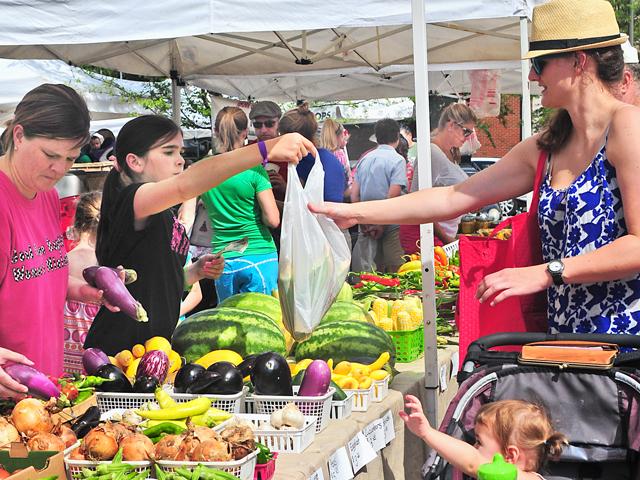Local Meat Processors and Food Safety
Pro Local-Meat-Processor Lawmakers Join Ranks for PRIME Act
It should come as no surprise to anyone in the beef business that a new bill in favor of reducing federal regulations for small meat processors is the source of major disagreement between key industry groups.
Known as the PRIME Act, or the Processing Revival and Intrastate Meat Exemption Act, the bill goes back to June 11, 2021, but it's top of mind again after a Senate version was introduced.
The original House bill, HR 3835, was sponsored by Rep. Thomas Masie, R-Ky., and came with 49 cosponsors, including seven Democrats. The PRIME Act would amend the Federal Meat Inspection Act, exempting from inspection the slaughter of animals and the preparation of carcasses conducted at custom slaughter facilities. This exemption would only apply to federal regulations, not state, county, or local ordinances. The bill says it is only applicable for meat products prepared "exclusively for distribution to household consumers within the State; and restaurants, hotels, boarding houses, grocery stores, or other establishments located in such State..."
The companion legislation in the Senate was introduced March 22, 2023, by Sen. Angus S. King, Jr., an Independent for the state of Maine. The wording in this companion legislation is essentially the same. There are six cosponsors on the Senate bill, all of them Republicans.
The PRIME Act, while referring to "custom slaughter facilities," does not define this by number of animals processed, only referring to the "intrastate" nature of the goods sold from such facilities.
SUPPORTERS OF THE PRIME ACT
The FreedomWorks Group is pushing hard for this act to be part of the upcoming farm bill. Marty Irby, chief operating officer for the group, spoke to DTN about why they are behind the bill.
"At the core of it, is that we believe farmers across the country are forced to sell livestock at a lower price because of where it has to be slaughtered. With beef, you have many of these animals leaving the farm, being transported halfway across the country to be fed and slaughtered, and then they are shipped back. That food could have been raised and slaughtered locally if the proper policies were in place," he said.
P[L1] D[0x0] M[300x250] OOP[F] ADUNIT[] T[]
Irby noted there is strong opposition to the PRIME Act coming from the National Cattlemen's Association (NCBA) "and others in industrialized agriculture." He said this is the biggest obstacle to passing the PRIME Act because many on the Agriculture Committee give a lot of credibility to these groups.
"But we don't believe they represent the average beef rancher or producer at all," Irby added. "I don't understand how opening markets isn't something they are all in favor of. Because this is an intrastate bill, not interstate, it doesn't cut into existing industrialized markets. This is just for the local guy to be able to process in his hometown and distribute to consumers within driving distance."
Another supporter of the PRIME Act, R-CALF USA, has asked its members to encourage their representatives to cosponsor the House and the Senate bill.
Bill Bullard, CEO of the group, told DTN he believes one of the greatest needs for U.S. cattle producers is more market opportunity and more processing capacity.
"Custom slaughterhouses, although a small percentage, are very important to our local communities," Bullard said. "PRIME allows these processors to sell within the state they process beef and allows state inspection programs to write the rules to ensure the proper safety protocol is followed. Custom slaughterhouses are already subject to federal safety rules. Creating greater market opportunities for custom plants may encourage expansion and proliferation of these type plants, and we believe that benefits producers who can sell into their local markets."
OPPOSERS OF THE PRIME ACT
Both the NCBA and the North American Meat Institute (the Meat Institute) oppose the PRIME Act.
The NCBA issued a statement stressing that its leadership believes PRIME is a threat to food safety. Todd Wilkinson, a South Dakota cattle producer and NCBA president, stated that while the NCBA is in favor of reducing regulatory burdens, it can't be at the expense of food safety.
"While the PRIME Act is well-intentioned, allowing uninspected beef to enter the retail market is dangerous to consumers," he said. Wilkinson added that the NCBA has supported the DIRECT Act, which would allow state-inspected beef to be sold interstate in limited quantities, direct-to-consumer, and through e-commerce.
"Unlike the PRIME Act, these measures would create the necessary paper trail to trace and contain any potential food safety concerns," he said.
The NCBA has maintained that because there is no "paper trail" for the movement of uninspected meat, there is no way to know whether these products leave the state or not under the PRIME Act.
The Meat Institute's president and CEO, Julie Anna Potts, also took a stand against the PRIME Act, based on food safety risks.
"Allowing meat to enter commerce without inspection, and without alerting consumers they are buying uninspected meat, jeopardizes food safety and will undermine consumer confidence in all meat products," she stated.
Potts pointed to USDA grants, which she said are available to help new and small facilities be able to "gain inspection from FSIS (Food Safety and Inspection Service)."
The most recent USDA announcement regarding Local Meat Capacity Grants makes available up to $75 million to help producers with more local processing options and strengthening market potential. Applications for these grants are being accepted through July 19, 2023. Here is a link: https://www.ams.usda.gov/….
Victoria Myers can be reached at vicki.myers@dtn.com
Follow her on Twitter @myersPF
(c) Copyright 2023 DTN, LLC. All rights reserved.





